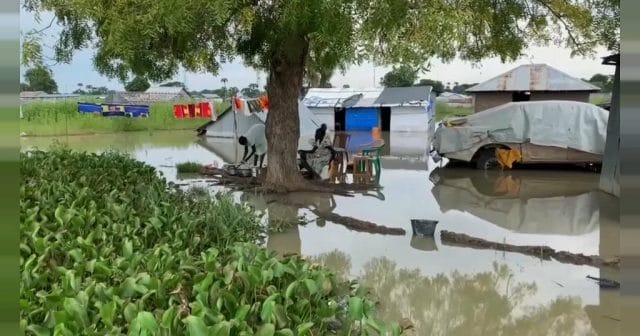
Parts of South Sudan are experiencing their worst floods in 60 years and the United Nations is linking the situation to climate change.
For some areas it is the third straight year of extreme flooding, endangering livelihoods in the world’s youngest nation.
In addition to the flooding a five-year civil war, hunger and corruption have all ravaged the nation. Now climate change is impossible to ignore.
The UN refugee agency has reported heavy flooding that has left a trail of destruction in South Sudan where the livelihoods of 700,000 people have been negatively impacted.
Even though flooding is commonplace in South Sudan the intensity of its current impact has been described as unusual.
Villages have been swept away or submerged and thousands have been rendered homeless.
Consequently, many have fled their homes and are seeking shelter on higher ground as they wait for water levels to subside.
Faith Kasina, the regional spokesperson for UNHCR in East Africa, described the area as being prone to severe weather situations which she said she could only attribute to changes in the climate.
According to Adesh Tripathee, regional head of disaster and climate crisis for Sub Saharan Africa at the International Federation of Red Cross and Red Crescent Societies, the floods have affected the northern and eastern parts of South Sudan.
“People’s capacity to cope was also eroded by a number of combined disasters,” he said adding that COVID-19 combined with floods had caused challenges from a social economic point of view.
The flooding also increases the occurrences of water borne diseases as well as disrupting farmers who have been unable to plant crops which in turn is creating a looming food crisis.
Aid agencies such as the UNHCR have also reported facing difficulties in trying to access areas that are in need of humanitarian assistance as infrastructure has been damaged by the flooding.
According to Tripathee, the number of people in need of humanitarian assistance will continue to increase due to expected prolonged rainfall for the rest of the year.
A new report this week coordinated by the World Meteorological Organization warned of increasing climate shocks to come across much of Africa.

